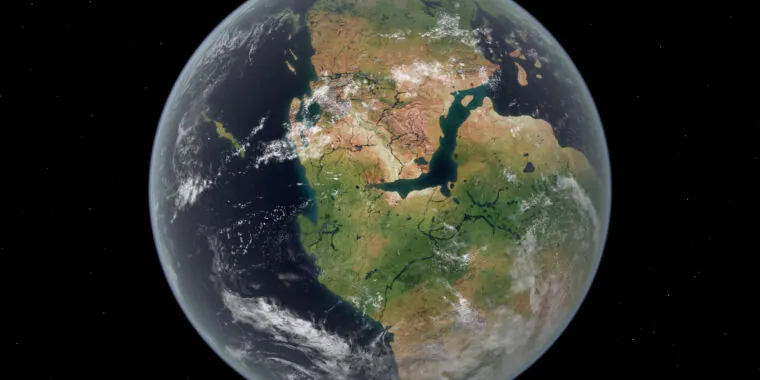
Unlocking Earth's Climate History: A Revolutionary Record Spanning 500 Million Years!
2024-09-20
Unlocking Earth's Climate History: A Revolutionary Record Spanning 500 Million Years!
Delve into Earth's climatic past like never before! Although modern global temperature records have only been maintained for less than two centuries, scientists have ingeniously reconstructed the planet's temperature history over a staggering 500 million years – yes, you read that right! Thanks to temperature proxies like tree rings and isotope ratios, researchers have pieced together the climatic puzzles long before the invention of thermometers.
But here's where it gets tricky. The further we go back in time, the fewer climate proxies remain intact, making it increasingly challenging to compile a reliable global temperature record. Although significant events such as the Paleocene-Eocene Thermal Maximum (PETM) from around 55 million years ago provide some insights, comprehensive understanding of ancient climates has been largely elusive until now.
Recent groundbreaking research harnesses a combination of these proxies along with advanced climate models, offering a fresh and extensive view of Earth's climate history, reaching back to the time of the Cambrian explosion when complex life began to thrive. The study unearths a compelling connection between atmospheric carbon dioxide levels and global temperatures throughout this time span, revealing astonishing insights that could reshape our understanding of climate dynamics.
Innovative Research Approach
This pioneering study, conducted by an international team of scientists, focuses primarily on a specific proxy: the ratio of oxygen isotopes found in the shells of marine organisms. While there are multiple land-based proxies, their data often comes with significant uncertainty. The researchers implemented two methods to convert these proxies into temperature data: one positing a constant ratio of oxygen isotopes in seawater and another accounting for gradual changes over the millennia.
Climate models played a crucial role in translating localized proxy data into a global temperature estimate. By examining factors like continental positions and varying carbon dioxide concentrations, these models effectively projected potential global temperatures consistent with the collected proxy data. The study, dubbed PhanDA, estimates global temperatures over the last 485 million years, covering crucial periods of Earth's history.
Key Findings and Insights
What did the PhanDA study uncover? Notably, it confirms that the globe's average temperature has oscillated, dipping to about 11°C during glacial periods and soaring up to a blistering 36°C roughly 90 million years ago. Such extremes mirror patterns observed during the PETM and highlight the impact of significant climate events, such as the cataclysmic eruptions that formed the Siberian Traps.
Long trends of warming varied with cooling phases, influenced heavily by the assembly and breakup of supercontinents. Strikingly, the Earth spent more time in warm greenhouse climates—41% of the period—compared to icehouse climates, which occurred 31% of the time. The most dramatic differences emerged in polar regions, with a staggering 30° to 50°C variation between equatorial regions and high latitudes during icehouse phases.
Implications for Today's Climate Crisis
Understanding these ancient climate dynamics is more crucial than ever as the world grapples with contemporary climate change. The results of the PhanDA study provide not only a window into the distant past but also a critical foundation for predicting future climate shifts. By examining how Earth’s temperature has changed over millions of years, scientists can better inform policies and strategies to combat rising global temperatures today.
Stay tuned as we continue to uncover more about our planet's historical climate and its implications for our future. The Earth's climate history is not just a scientific quest; it holds lessons that could determine our fate on this ever-changing planet!





 Brasil (PT)
Brasil (PT)
 Canada (EN)
Canada (EN)
 Chile (ES)
Chile (ES)
 España (ES)
España (ES)
 France (FR)
France (FR)
 Hong Kong (EN)
Hong Kong (EN)
 Italia (IT)
Italia (IT)
 日本 (JA)
日本 (JA)
 Magyarország (HU)
Magyarország (HU)
 Norge (NO)
Norge (NO)
 Polska (PL)
Polska (PL)
 Schweiz (DE)
Schweiz (DE)
 Singapore (EN)
Singapore (EN)
 Sverige (SV)
Sverige (SV)
 Suomi (FI)
Suomi (FI)
 Türkiye (TR)
Türkiye (TR)